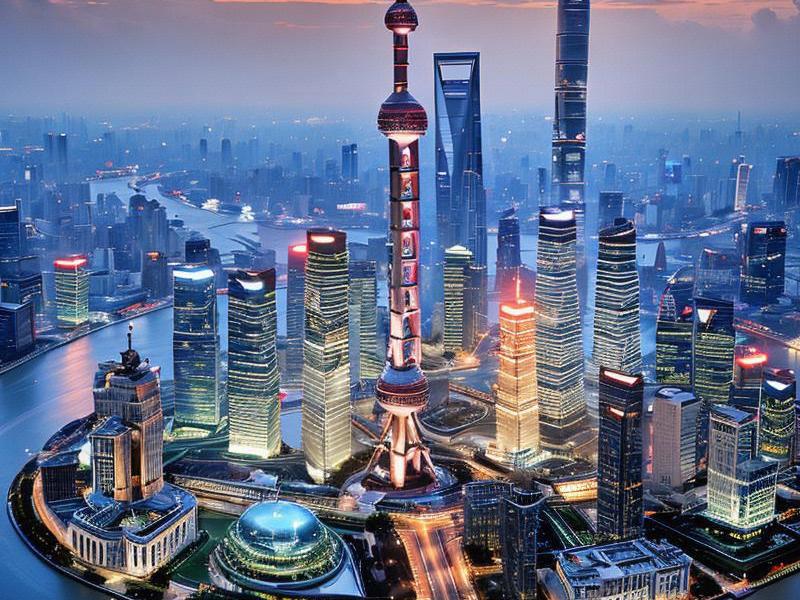Shanghai's Journey to Becoming a Global Innovation Hub
⏱ 2025-04-27 11:59 🔖 上海品茶工作室
📢0℃

Shanghai, the bustling metropolis on the banks of the Huangpu River, has long been a symbol of China's economic prowess. Over the past few decades, this city has not only solidified its position as one of the world's leading financial centers but has also emerged as a beacon of innovation. Shanghai's journey to becoming a global innovation hub is a testament to its forward-thinking policies, robust infrastructure, and a culture that embraces change and progress.
The city's transformation began in earnest in the late 20th century when China initiated its reform and opening-up policies. Shanghai, with its strategic location and deep-water port, was chosen as a key player in this national effort. The establishment of the Pudong New Area in 1990 marked a turning point, as it became a testing ground for economic reforms and a showcase for modern urban planning.
One of the cornerstones of Shanghai's rise as an innovation hub is its commitment to technological advancement. The city has invested heavily in research and development (R&D), creating a fertile environment for startups and established companies alike. The Zhangjiang Hi-Tech Park, often referred to as "China's Silicon Valley," is home to numerous high-tech enterprises, research institutions, and universities. This park has become a magnet for talent from around the globe, fostering collaboration and innovation.
Shanghai's government has also played a pivotal role in nurturing the city's innovative spirit. Through initiatives such as the Shanghai Free-Trade Zone, the city has attracted foreign investment and encouraged the growth of international businesses. The free-trade zone offers a range of incentives, including tax breaks and streamlined administrative procedures, making it an attractive destination for multinational corporations.
上海龙凤419社区 The city's strategic focus on emerging technologies such as artificial intelligence (AI), big data, and the Internet of Things (IoT) has further solidified its position as a global leader. Shanghai has established itself as a hub for AI research and development, with numerous companies and research institutions working on cutting-edge projects. The city's AI industry is expected to contribute billions of dollars to the local economy in the coming years.
In addition to technology, Shanghai's economic strategies have been instrumental in its transformation. The city has embraced a diversified economy, moving beyond traditional manufacturing to focus on services, finance, and high-tech industries. This diversification has made Shanghai more resilient to economic fluctuations and has attracted a wide range of industries to the city.
The urban development policies in Shanghai have also contributed to its status as an innovation hub. The city has invested heavily in infrastructure, including transportation, energy, and communication networks. The Shanghai Maglev Train, the world's fastest commercial train, is a prime example of the city's commitment to cutting-edge transportation solutions. The development of the Hongqiao Integrated Transport Hub, which combines air, rail, and metro services, has further enhanced the city's connectivity.
Shanghai's urban planning has also prioritized sustainability and livability. The city has implemented various green initiatives, such as the construction of energy-efficient buildings and the promotion of public transportation. The Bund and Pudong areas, with their stunning skyline and waterfront views, are a testament to the city's ability to blend modernity with preservation.
上海龙凤419会所
The cultural aspect of Shanghai's transformation cannot be overlooked. The city has a rich history and a vibrant culture that attracts people from all over the world. Shanghai's art scene, with its galleries, theaters, and music venues, is thriving, providing a platform for creative expression and innovation. The city's culinary scene, with its fusion of traditional Chinese and international flavors, is another aspect that contributes to its global appeal.
Education plays a crucial role in Shanghai's innovation ecosystem. The city is home to some of the best universities in China, including Fudan University and Tongji University, which are renowned for their research and academic programs. These institutions produce a steady stream of highly skilled graduates who contribute to the city's innovative endeavors.
Shanghai's international collaborations have further enhanced its status as a global innovation hub. The city has established partnerships with numerous international organizations and cities, facilitating the exchange of knowledge, technology, and talent. These collaborations have enabled Shanghai to stay at the forefront of global trends and developments.
上海水磨外卖工作室 Despite its many achievements, Shanghai continues to face challenges in its journey to becoming a global innovation hub. The city must address issues such as housing affordability, environmental sustainability, and the need for continuous innovation. However, with its strong leadership, strategic vision, and commitment to progress, Shanghai is well-equipped to overcome these challenges.
Looking ahead, Shanghai's future as a global innovation hub looks promising. The city is poised to play a leading role in shaping the future of technology, economy, and urban development. With its focus on emerging technologies, diversified economy, and sustainable urban planning, Shanghai is setting a benchmark for other cities around the world.
In conclusion, Shanghai's transformation into a global innovation hub is a remarkable story of resilience, adaptability, and ambition. The city's commitment to technological advancement, economic strategies, and urban development has positioned it as a leader on the world stage. As Shanghai continues to innovate and evolve, it will undoubtedly inspire other cities to follow in its footsteps and embrace the opportunities and challenges of the 21st century.
Shanghai 2040: Where Futurism and Heritage Collide in China's Global MegacityShanghai 2040: How China's Global City Is Reinventing Urban LivingThe Phoenix of the East: How Shanghai is Reinventing Global Cultural InfluenceShanghai's Green Transformation: Pioneering Sustainable Urban Development in the 21st Century【摩登密码】从月份牌到元宇宙:上海女性审美百年流变录Shanghai's Vibrant Lifestyle, from Historical Pedigree to a Global Metropolis【特别调查】"共饮一江水:长三角生态绿色一体化发展示范区三年成效报告"【摩登密码】从石库门到元宇宙:上海女性的百年形象革命Shanghai’s Digital Elegance: Where Tradition Meets Tomorrow’s Frontier in BeautyShanghai's Nightlife Evolution: How Luxury Entertainment Clubs Are Redefining Urban Social Culture
海派烟火眉:上海美女的市井诗行与精神注脚《霓虹深处:南京东路百年商业街的进化论》《百乐门到元宇宙:上海娱乐会所进化论》霓虹与檀香:上海高端会所三十年文化流变"四段式模板
7. 历史参考:前两篇分别以"感官革命"和"时空折叠"为切入点,本次需创新视角
8. 时效元素:当前为2025年,可融入AI、元宇宙等现代科技元素
9. 价值导向:展现独立、智慧的当代上海女性形象,规避物化倾向
以下是符合要求的深度特稿:《梧桐树下的方程式:95后女科学家与旗袍实验室的双城记》《石库门密码:上海里弄建筑的时空折叠》《石库门里的时光标本》《梧桐树下的城市镜像》梧桐区镜像:上海女性的空间叙事与身份建构
空间修辞,身体政治,时尚语法,记忆拓扑,社群算法

